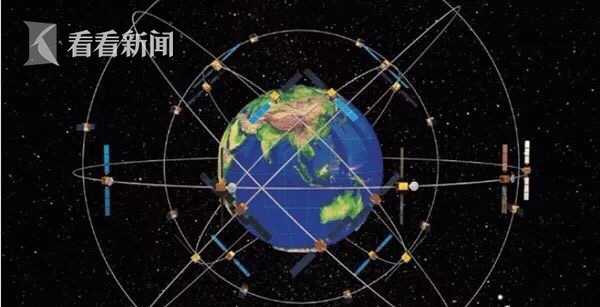
The five functional modules of the operating system are processor management, memory management, device management, file management and operation management. Processor management The most basic function of processor management is to process interrupt events. After configuring the operating system, various events can be processed.
The functions of the computer operating system include: processor management, memory management, device management, file management, job management and other functional modules. Processor management. The most basic function of processor management is to handle interrupt events. The processor can only detect interrupt events and generate interrupts and cannot process them.
Storage management is divided into several functions: storage allocation, storage sharing, storage protection, and storage expansion.Equipment management has the following functions: equipment allocation, equipment transmission control, and equipment independence. File management: file storage space management, directory management, file operation management, file protection.
The operating system should usually include the following five functional modules: (1) Processor management. When multiple programs are running at the same time, solve the problem of processor (cpu) time allocation. ( 2) Operation management. The program to complete an independent task and its required data constitute a task.
The function of the operating system is mainly reflected in the management of computer resources - microprocessors, memory, external devices, files and tasks. The operating system sets this management function into the corresponding program management module, and each management module is responsible for a certain function.That is, the five functions of the operating system.
The operating system has five functions: processor management: mainly controls and manages the work of the CPU. Storage management: mainly carry out memory allocation and management device management: mainly manage basic input and output device file management: responsible for the organization, storage, operation and protection of computer files, etc.

There are the following types of management systems: the management system of the finished product set. This kind of system is a stereotyped management system, which makes a small number of functional adjustments to the software through the parameter settings of the software.
Transaction Processing System (TPS): Operators and supervisors are used to input transactions, events, sort, list, merge updates, output detailed reports, lists and summaries, etc. Management Information System (MIS): Middle managers are used to input general transaction data and simple models to process routine reports.
Adgecal management system Academic management system is one of the most core management systems of the school, which is responsible for arranging and managing the school's teaching activities. It includes curriculum setting, teaching plan, teacher arrangement, examination management and other contents.
VMware vSphere: It is a virtualization management platform that can be used to manage virtual machines, storage and networks, etc. Nagios: It is an open source network monitoring system that can be used to monitor network devices, servers and applications, etc.
Financial subsystem: providing the function of financial management information; Decision support subsystem: make the logistics information system reach a higher level.
ERP management system brand Youyou, Jindie International Software, Wave Software, Dingjie Software, Zhenghang Software. Use friends.
1. System management refers to the information technology system that manages enterprises, and file management is one of the five major functions of the operating system.First, network management refers to the centralized management of resources on the network by network administrators through network management programs.
2. System Management regards organizational components as interrelated and interdependent systems, so it advocates applying the system concept to the management concept.
3. System management refers to the process of maintaining, managing and monitoring computer systems. As an important part of enterprise informatization construction, the importance of computer system management cannot be ignored.
DigiPlus stock-APP, download it now, new users will receive a novice gift pack.
The five functional modules of the operating system are processor management, memory management, device management, file management and operation management. Processor management The most basic function of processor management is to process interrupt events. After configuring the operating system, various events can be processed.
The functions of the computer operating system include: processor management, memory management, device management, file management, job management and other functional modules. Processor management. The most basic function of processor management is to handle interrupt events. The processor can only detect interrupt events and generate interrupts and cannot process them.
Storage management is divided into several functions: storage allocation, storage sharing, storage protection, and storage expansion.Equipment management has the following functions: equipment allocation, equipment transmission control, and equipment independence. File management: file storage space management, directory management, file operation management, file protection.
The operating system should usually include the following five functional modules: (1) Processor management. When multiple programs are running at the same time, solve the problem of processor (cpu) time allocation. ( 2) Operation management. The program to complete an independent task and its required data constitute a task.
The function of the operating system is mainly reflected in the management of computer resources - microprocessors, memory, external devices, files and tasks. The operating system sets this management function into the corresponding program management module, and each management module is responsible for a certain function.That is, the five functions of the operating system.
The operating system has five functions: processor management: mainly controls and manages the work of the CPU. Storage management: mainly carry out memory allocation and management device management: mainly manage basic input and output device file management: responsible for the organization, storage, operation and protection of computer files, etc.

There are the following types of management systems: the management system of the finished product set. This kind of system is a stereotyped management system, which makes a small number of functional adjustments to the software through the parameter settings of the software.
Transaction Processing System (TPS): Operators and supervisors are used to input transactions, events, sort, list, merge updates, output detailed reports, lists and summaries, etc. Management Information System (MIS): Middle managers are used to input general transaction data and simple models to process routine reports.
Adgecal management system Academic management system is one of the most core management systems of the school, which is responsible for arranging and managing the school's teaching activities. It includes curriculum setting, teaching plan, teacher arrangement, examination management and other contents.
VMware vSphere: It is a virtualization management platform that can be used to manage virtual machines, storage and networks, etc. Nagios: It is an open source network monitoring system that can be used to monitor network devices, servers and applications, etc.
Financial subsystem: providing the function of financial management information; Decision support subsystem: make the logistics information system reach a higher level.
ERP management system brand Youyou, Jindie International Software, Wave Software, Dingjie Software, Zhenghang Software. Use friends.
1. System management refers to the information technology system that manages enterprises, and file management is one of the five major functions of the operating system.First, network management refers to the centralized management of resources on the network by network administrators through network management programs.
2. System Management regards organizational components as interrelated and interdependent systems, so it advocates applying the system concept to the management concept.
3. System management refers to the process of maintaining, managing and monitoring computer systems. As an important part of enterprise informatization construction, the importance of computer system management cannot be ignored.
100 free bonus casino no deposit GCash
author: 2025-01-13 12:50 UEFA EURO
UEFA EURO
516.79MB
Check LR stock price Philippines
LR stock price Philippines
978.53MB
Check DigiPlus stock
DigiPlus stock
242.42MB
Check UEFA Europa League
UEFA Europa League
667.76MB
Check Casino free 100 no deposit
Casino free 100 no deposit
426.91MB
Check UEFA Champions League live streaming free
UEFA Champions League live streaming free
518.39MB
Check Casino Plus
Casino Plus
993.83MB
Check casino plus free 100
casino plus free 100
616.59MB
Check Hearthstone deck
Hearthstone deck
195.74MB
Check Champions League
Champions League
399.52MB
Check UEFA live free
UEFA live free
856.36MB
Check Hearthstone deck
Hearthstone deck
524.67MB
Check UEFA TV
UEFA TV
829.21MB
Check Arena Plus login
Arena Plus login
579.85MB
Check UEFA European championship
UEFA European championship
568.43MB
Check UEFA Champions League live streaming app
UEFA Champions League live streaming app
562.62MB
Check Hearthstone Arena Tier List
Hearthstone Arena Tier List
589.22MB
Check Walletinvestor digi plus
Walletinvestor digi plus
822.75MB
Check UEFA Champions League live streaming app
UEFA Champions League live streaming app
917.19MB
Check DigiPlus stock
DigiPlus stock
985.29MB
Check App to watch Champions League live free
App to watch Champions League live free
498.74MB
Check Bingo Plus
Bingo Plus
793.53MB
Check TNT Sports
TNT Sports
525.17MB
Check European Cup live
European Cup live
429.71MB
Check bingo plus update today
bingo plus update today
321.13MB
Check Casino free 100 no deposit
Casino free 100 no deposit
515.69MB
Check Hearthstone arena
Hearthstone arena
282.24MB
Check Free sports events uefa champions league app android
Free sports events uefa champions league app android
962.88MB
Check Arena plus APK
Arena plus APK
665.35MB
Check DigiPlus stock
DigiPlus stock
421.98MB
Check DigiPlus stock
DigiPlus stock
994.89MB
Check TNT Sports
TNT Sports
973.28MB
Check Hearthstone arena
Hearthstone arena
333.98MB
Check Casino Plus GCash login
Casino Plus GCash login
658.74MB
Check LR stock price Philippines
LR stock price Philippines
275.91MB
Check Arena Plus login
Arena Plus login
627.49MB
Check
Scan to install
DigiPlus stock to discover more
Netizen comments More
481 UEFA Europa League
2025-01-13 14:40 recommend
622 UEFA Champions League live streaming free
2025-01-13 14:11 recommend
1141 casino plus free 100
2025-01-13 13:47 recommend
2999 Casino Plus login register
2025-01-13 13:43 recommend
2046 bingo plus update today Philippines
2025-01-13 13:13 recommend